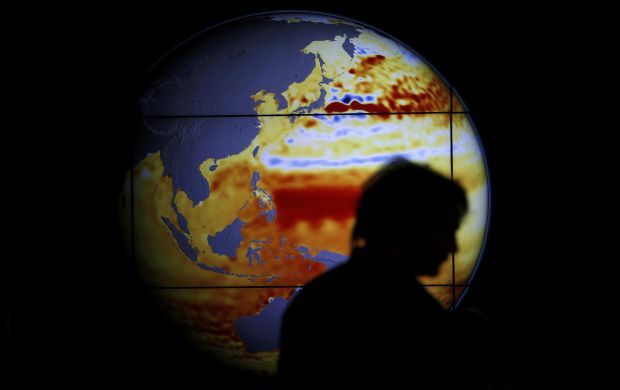
Poland's deputy environment minister, Michal Kurtyka, said on Saturday he was in contact with the authorities over reports from campaign groups that at least 12 to 14 activists were refused entry to the country or deported while on their way to a U.N. climate change conference in Katowice.
Human rights experts said the reported barring of activists contradicted the spirit of the 2015 Paris Agreement on global warming which entrenches the principle of public participation in action to combat global warming, Reuters said.
"There is a commitment to allow everybody who wishes to engage constructively in this discussion, to be part of it," said Kurtyka, who is presiding over the negotiations, as demonstrators marched through the city streets demanding stronger efforts to tackle climate change.
"It is important that all the rules are being respected in a very constructive way," he told journalists.
He did not confirm the reports about activists issued on Friday evening by international campaign groups 350.org and Climate Action Network International.
U.N. climate chief Patricia Espinosa said her office was trying to clarify information about the cases.
Green groups said those barred from Poland included people from Ukraine, Georgia and Kyrgyzstan.
Read alsoEnvironmental hazard: Donbas militants burying Russian radioactive waste
"We are hopeful and grateful for efforts by the Polish authorities to address this situation and ensure we can continue into the next week in the most inclusive atmosphere," Espinosa said.
A spokeswoman for the Polish presidency of the talks told Reuters some activists had been denied entry to Poland because they did not meet requirements or were on a list preventing them from entering Europe's border-control-free Schengen Area.
A Polish border guard spokeswoman said 161 people had been forbidden entry to Poland on Friday for many reasons, including a lack of correct documents and being on security lists.
She could not immediately say whether there was any connection to the climate talks in Katowice.
Earlier this year, Poland came under international pressure to allow activists to demonstrate freely at the U.N. climate change talks, and to protect participants' privacy, after new legislation passed in January sparked fears over civil rights.
That legislation forbids spontaneous protests in Katowice during the talks, and allows police to collect personal data on delegates without their consent, according to Human Rights Watch.
May Boeve, executive director of 350.org, told the Thomson Reuters Foundation that activists who wanted to come to Poland to help create solutions to climate change were being intimidated, detracting from the talks' main purpose of stepping up ambition to tackle global warming.
Svitlana Romanko, regional coordinator for 350.org in Eastern Europe, Caucasus and Central Asia, said her group did not know the whereabouts of two Ukrainian NGO workers who had been in Katowice for a week at the talks, following a police check on their papers on Saturday morning.
Other six activists from Ukraine were denied entry into Poland. Valentyn Nyzkovolosov was among them.
"We were detained in Przemysl, we were not able to go beyond the station. [The] official reason for [the] refusal of entry: [the activists are] "considered a threat to public policy, internal security, public health or international relations of any Member State of the European Union," he wrote on Facebook on December 8.

